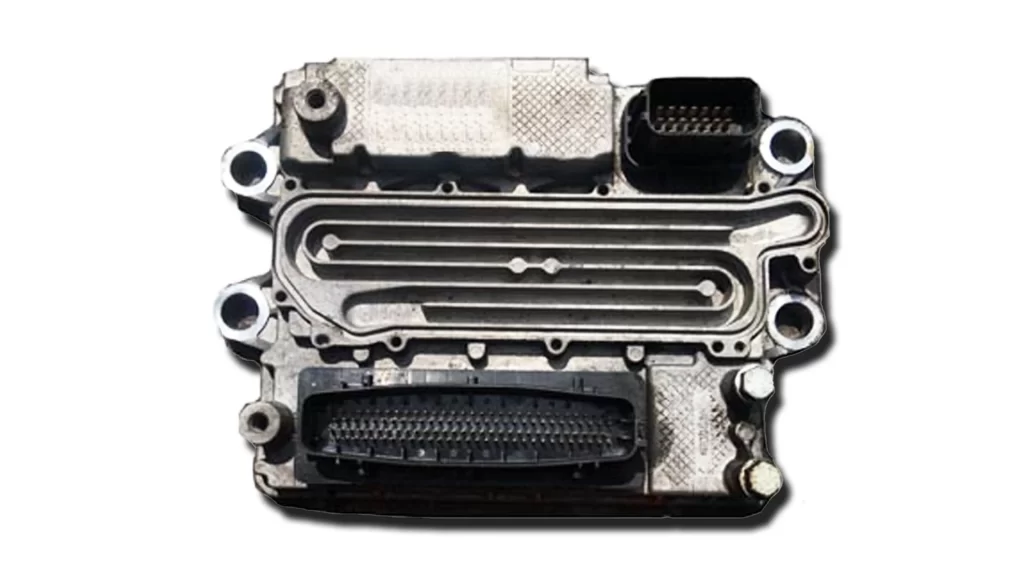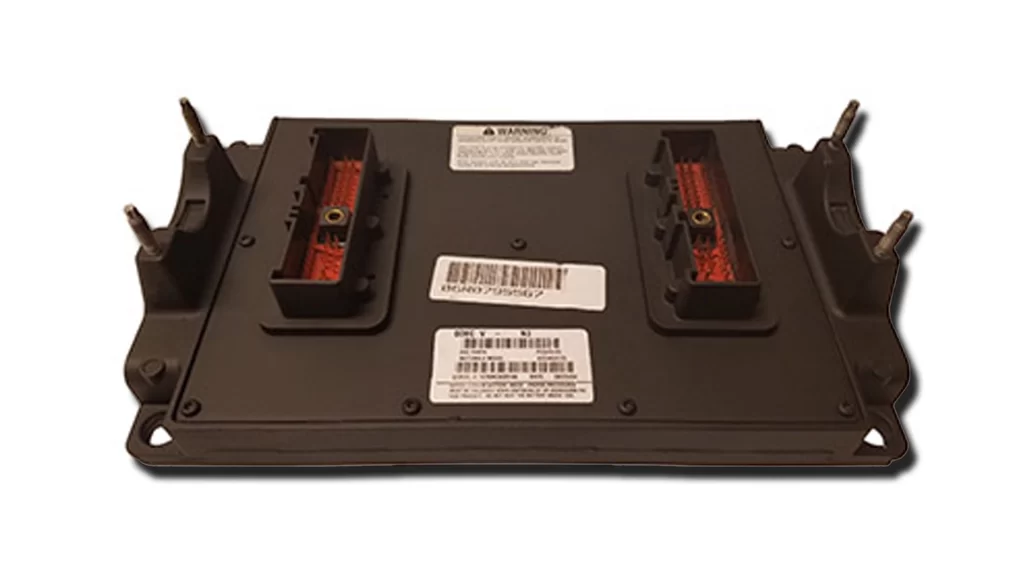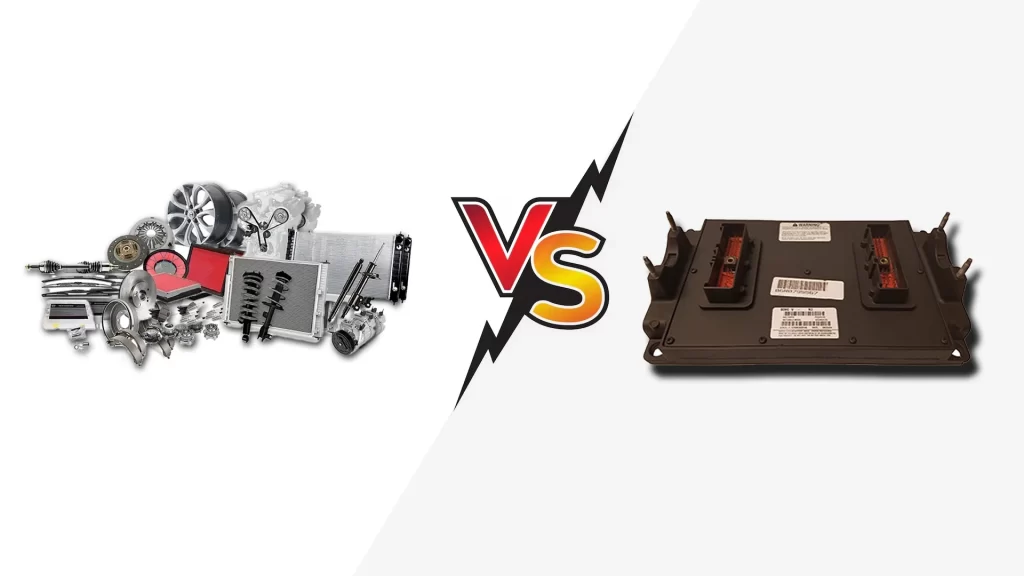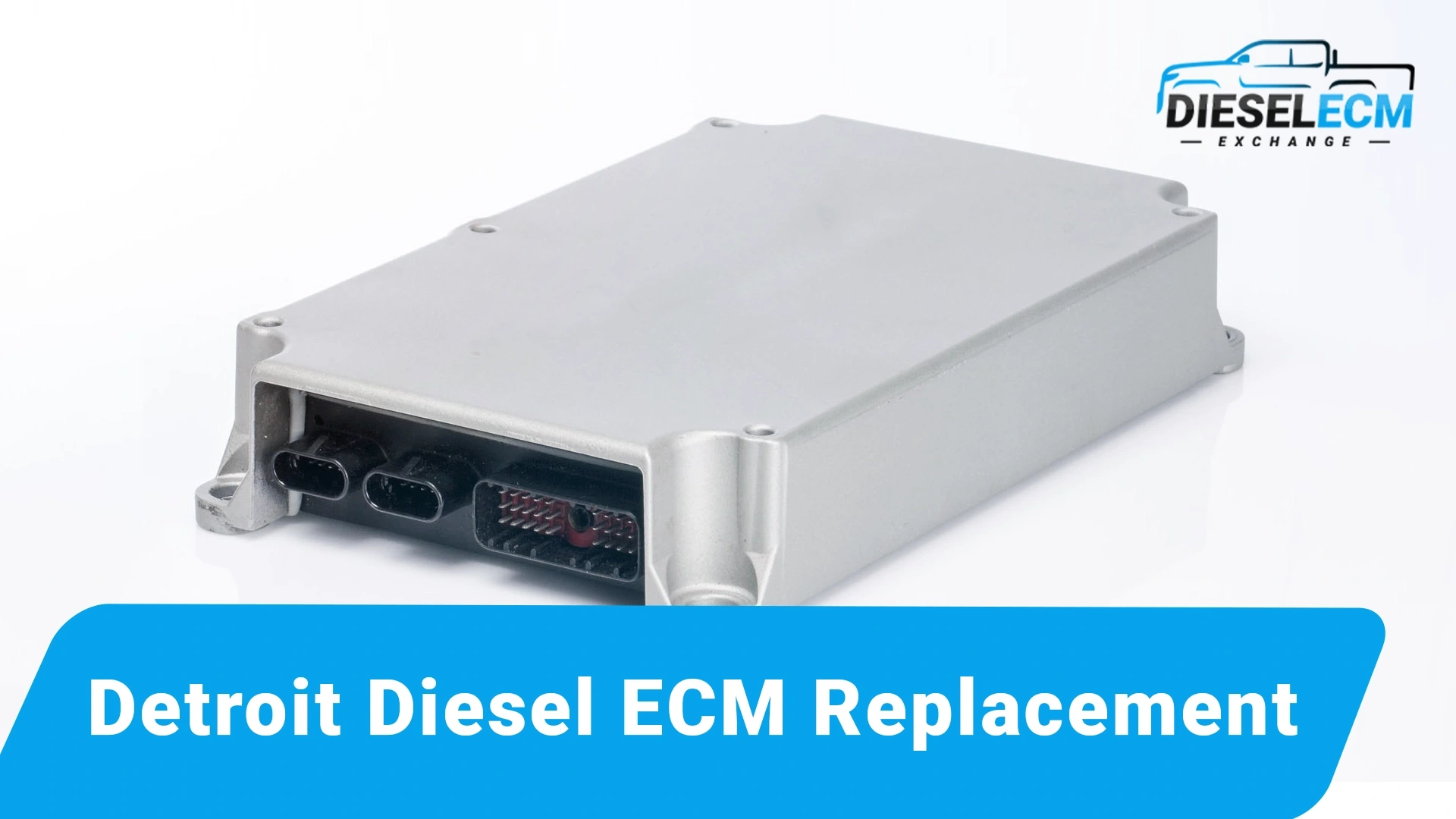Is your Detroit Diesel engine acting up? Is the ECM (Engine Control Module) the culprit? Whether you’re managing a fleet or just one powerhouse vehicle, you know how critical that little black box is. The ECM controls vital engine functions, and when it fails, your engine performance can go downhill fast.
If you’re exploring Detroit Diesel ECM replacement, one of the biggest decisions you’ll face is whether to go for an OEM (Original Equipment Manufacturer) module or a remanufactured one. Both options offer pros and cons, but which is right for your engine, your budget, and your peace of mind?
Let’s dive into the options, the differences, and what makes one solution better than the other, depending on your needs.
What is a Detroit Diesel ECM?
A Detroit Diesel ECM is the brain behind your engine’s operation. It monitors and controls everything from fuel injection timing to emissions systems, turbo boost, and idle speed. Without a functioning ECM, your engine can misfire, run inefficiently, or fail to start altogether.
Common Symptoms of a Failing ECM
– Engine won’t start or starts intermittently
– Check engine light stays on
– Poor fuel economy
– Trouble shifting gears
– Diagnostic Trouble Codes (DTCs) appear frequently
“An ECM isn’t just a part. It’s your engine’s decision-maker.”
When Do You Need an ECM Replacement?
Replacing the ECM isn’t always the first step. Many times, a repair or reprogramming will fix the issue. But how do you know when it’s truly time to replace it?
Situations That Require ECM Replacement
– The ECM is damaged by water, fire, or electrical surges
– It’s an obsolete model with no compatible software
– Previous repair attempts failed
– Internal components are beyond repair
OEM ECM Replacement for Detroit Diesel

Choosing an OEM ECM means you’re investing in factory-level performance and reliability. These modules are built to Detroit Diesel’s original specifications, ensuring seamless communication with all components of your engine.
While they come at a higher price point, OEM replacements are ideal for newer engines or when maximum dependability is non-negotiable.
What is an OEM ECM?
OEM stands for Original Equipment Manufacturer. An OEM ECM is brand-new and made specifically for Detroit Diesel engines using the original specifications.
Advantages of OEM ECM
– Factory-new components with zero prior use
– Full compatibility with Detroit Diesel systems
– Often comes with a longer manufacturer warranty
– Higher long-term reliability
Drawbacks of OEM ECM
– Higher upfront cost
– May need to be programmed at a dealer or specialized shop
– May have limited availability for older engine models
“OEM ECMs are ideal for those who want zero compromises and full peace of mind.”
Remanufactured ECM for Detroit Diesel

Remanufactured ECMs are a smart choice for many Detroit Diesel engine owners. These modules are rebuilt using tested components and updated to meet OEM specifications.
Not only do they offer an affordable alternative to brand-new parts, but they’re also readily available, especially for older engine models. For customers who need a fast turnaround with reliable performance, remanufactured ECMs strike an excellent balance.
What is a Remanufactured ECM?
A remanufactured ECM is a used module that has been thoroughly tested, cleaned, repaired, and updated to meet or exceed original OEM specs. It’s often sold pre-programmed, so it’s ready to install.
Benefits of Choosing Remanufactured ECM
– Significantly lower cost
– Pre-programmed options available for plug-and-play installation
– Faster shipping and availability for legacy systems
– Environment-friendly choice by recycling
– Eligible for core charge reimbursement when returning the old ECM
Potential Downsides
– May have a shorter warranty than the new OEM
– Slight risk of compatibility issues
– Lifespan may be shorter depending on previous use
“Remanufactured doesn’t mean second-rate — it means re-engineered for performance at a smarter price.”
Core Charge and Reimbursement Explained
When purchasing a remanufactured ECM, you’ll often see an added core charge. This is a refundable deposit you get back after returning your old ECM.
How Core Charges Work
1. Pay the cost of the ECM plus a core deposit
2. Receive your remanufactured ECM
3. Ship your original (bad) ECM back to the supplier
4. Get a refund for the core charge
Why This Matters
– Encourages recycling and reduces environmental waste
– Saves customers money
– Allows suppliers to continue offering remanufactured options
Quick Tip: Always confirm the return timeline to ensure you receive your full core refund.
ECM Repair Service Option
Sometimes, a full replacement isn’t needed. If your ECM isn’t physically damaged and has fixable internal issues, a repair service could be your best choice.
When Repair Makes Sense
– The unit has minor internal faults
– You’re not in a rush and can wait a few days
– You want to keep your original factory-programmed ECM
How ECM Repair Services Work
1. You ship the ECM to the repair facility
2. Technicians test and diagnose the issue
3. The ECM is repaired, reprogrammed, and shipped back
“Repair first, replace only when necessary.”
Choosing Between OEM and Remanufactured ECMs

Making the right choice between an OEM and a remanufactured ECM is essential to keep your Detroit Diesel engine running smoothly. It boils down to your priorities, whether it’s cost, speed of replacement, or longevity.
Knowing what each option offers will help you pick the solution that best fits your needs and gets your vehicle back on the road without hassle.
Choose OEM ECM If
– You want the highest possible reliability
– Your budget allows for premium options
– You’re dealing with newer engine models
– You’re working under strict warranty or resale conditions
Choose Remanufactured ECM If
– You’re looking for cost-effective reliability
– You want quick availability, especially for older engines
– You appreciate the benefit of pre-programmed modules
– You want to take advantage of the core refund
OEM vs Remanufactured ECM Comparison
Understanding the differences between OEM and remanufactured ECMs can help you make a more informed and cost-effective decision. Each option brings unique benefits depending on your needs, budget, and how quickly you need to get back on the road.
Here’s a side-by-side comparison to guide your choice.
| Feature | OEM ECM | Remanufactured ECM |
| Condition | Brand-new, factory-built | Remanufactured and tested |
| Lifespan | Longest potential lifespan | May vary based on history |
| Cost | Higher cost | More affordable |
| Programming | May require dealer programming | Often comes pre-programmed |
| Environmental Impact | Not eco-friendly | Environmentally friendly |
| Core Refund | Not applicable | Core refund offered |
| Compatibility with Older Engines | High for new models | Often better for legacy models |
| Warranty | Typically longer | Maybe shorter |
Where to Get Trusted ECM Services
If you’re ready to replace or repair your Detroit Diesel ECM, working with a trusted specialist can make all the difference. At Diesel ECM Exchange, we specialize in high-quality ECM, ECU, and FICM services tailored for diesel engines.
Why Choose Diesel ECM Exchange
– Pre-programmed replacement modules are ready to install
– Fast, professional ECM repair services with thorough diagnostics
– Core charge refund when you return your original module
– Dedicated support for Detroit Diesel and other major engine platforms
Whether you need a fast replacement or a cost-effective repair, Diesel ECM Exchange offers the expertise and reliability to get your engine back in top shape.
Conclusion
When your ECM fails, you’re not just fixing a part; you’re restoring performance, reliability, and peace of mind. Whether you opt for an OEM unit, a remanufactured alternative, or a professional repair service, make sure you understand the benefits and limitations of each path.
With the right decision, your Detroit Diesel engine will be back in peak condition, running strong and efficiently for the long haul.
Don’t wait until downtime costs you. Explore your Detroit Diesel ECM replacement options today and get back on the road with confidence.

